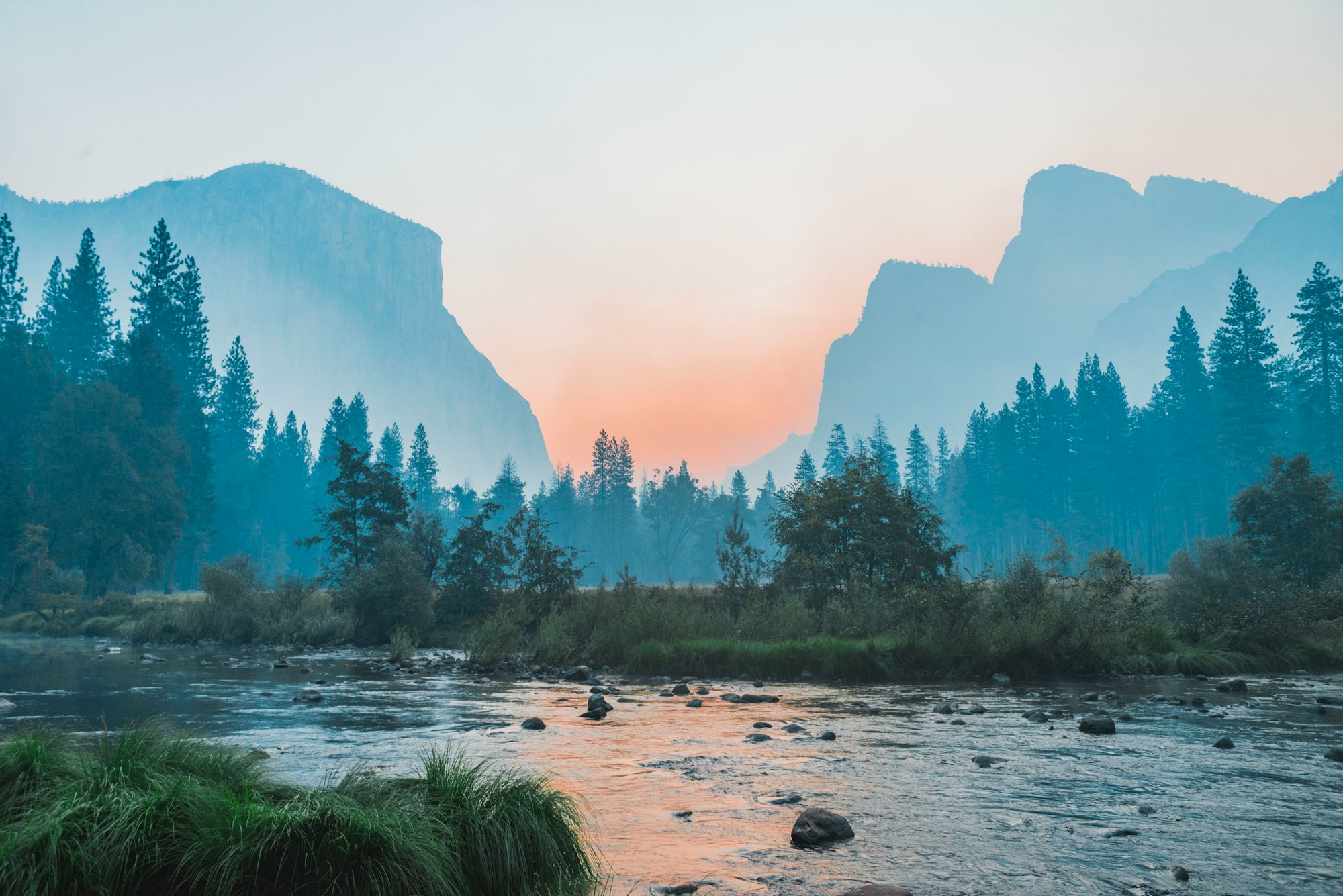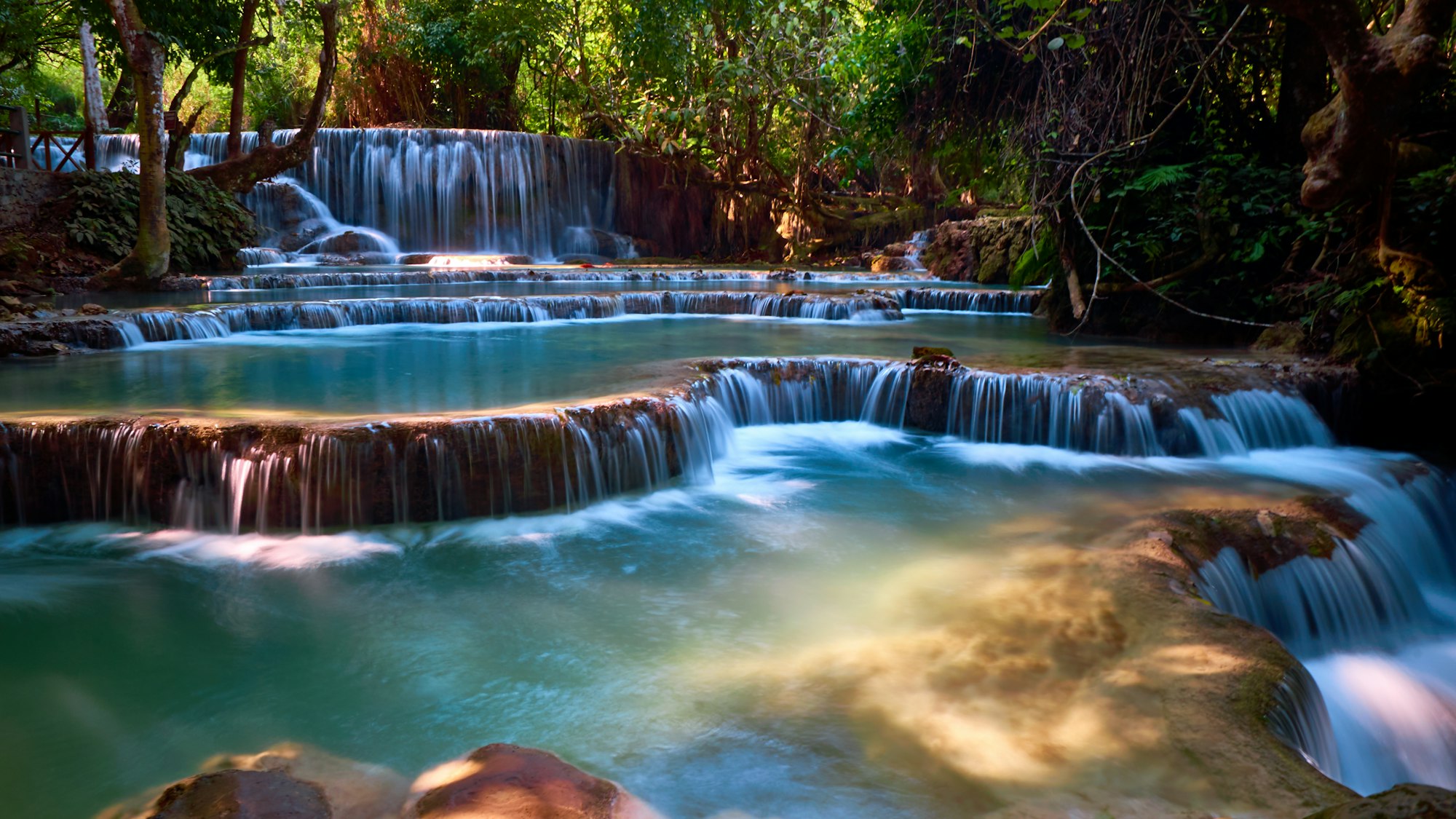
We all run deep, but we experience little if we don't explore our own waters first
Quarantine forced a great many, if not most of us, to shelter in place. For some it was agony. For others, a gift. I had a conversation with a friend this morning whose musings about fishing, life and quarantine led me to consider, as new strains of the virus potentially threaten to ground many of us again, what too many of us may have missed the first time around. That opportunity to dive into the depths of what courses through us is still available.
My friend's comments struck a nerve. He travels for work, and writes, as do I. Quarantine allowed him to work on his newest book, which is a joy, and which I am inhaling slowly as you would a fine perfume. I really want him to write more, which happens when he is home. He dives deeply not only into his own waters but also invites along so many of us who are fellow seekers, and who want answers. If not answers, perhaps, a roadmap and a compass at least, and enough light of our own to find our way.
He had used his down time wisely. I did, some, at least. We could all do better. His words were my starting point for this article.
Have you ever waded deeply into a river, just to be in the river?
To feel the tug of the current, the shapes of the rocks, watch fish nibble your ankle?

This was a weekend for rivers.
I received a story this morning which, along with my having spent this past weekend revisiting the heart-breakingly lovely movie A River Runs Through It, acted as perfect bookends to a Thanksgiving weekend of recovery and reminiscing.
First, the article on fishing.
Dr. Carl Safina is one of America's great treasures. Safina is a conservationist as well as an achingly lyrical writer whose research and world vision take the reader to far-flung places and into the deepest oceans to understand our impact on what we have left, in hopes of encouraging us to care enough about it to make an effort to preserve what is sacred.

His story about his (mostly unsuccessful) salmon fishing caught my attention because it was never truly about the salmon. Well, sort of. As a life-long fisherman, he loves the hunt. However, this article, as does most of his writing, delves far more deeply into what a river does for us. Redford's movie, based on the book by Norman Maclean, uses the great Montana trout rivers to teach about life, the universe, and passing of time, lives, loves and what truly matters.
My beloved uncle Bo was a most adept fly fisherman who moved to Santa Fe to spend his final years dry fly fishing the Rio Chama. He taught me the rhythm of the cast. I never caught a thing, but loved the art of the cast, the arc of the rod, the whip of the line whispering past my year.
It was pure art. Any true fly fisherman is, at heart, an artist.
As Safina fishes, at some point, given that salmon were not interested in eating but rather in spawning, he formed a mantra, and gave himself over to the Zen of his casting.
Aided by the sweet burble of the current which held his prey, he released intrusive thoughts of daily life and deadlines. Gave himself up to the river. To immortal time, the flash of sunlight on waves, pushing aside bills for birdsong.
This is why, truly why, we fish.
The river is that part of us which holds the deepest truths. Too often we seek the Next Big Thing, The Big Catch, never releasing ourselves to the pull of the current below simply to discover where it might take us. That kind of vulnerability is terrifying, which is why I believe we are so determined to tame and bow Nature to our feet. She humbles us, but in so doing, she elevates us to an art form.
In that same way we know so little about Nature, we know even less about ourselves. She can teach us but only when we stop hunting Her for trophies and start exploring ourselves for truth.
This paragraph from Safina's article sums it up perfectly for me:
Our lives barely scratch many surfaces. On the river, with my attention aided by my mantra, I could see only skin deep. A beaver on the bank was into my world for a few seconds, then vanished. I saw a few birds, and heard others unseen. This was neither my river nor realm. I knew nothing of what lay beyond the river-lining trees. I knew nothing of fish that might lie in deeper pools beneath riffles and rapids, where the water closed its turbulent canopy over the river stones. Even in shallow water, salmon are exquisitely difficult to see. I knew nothing of the river’s personal or natural history, of its multitudinous fish-nourishing insects, of the fishes that had, over centuries, millennia, come and gone. In sum, I saw but a little and understood far less.
It was a start.
Not knowing, and knowing that we don't know, is the start. Relaxing into not-knowing is precisely where Nature can begin to teach us.
Being on the river, in the river, in this sense, allows us to begin traversing our own. Looking for what skitters in and out of our peripheral vision. Listening for what might be hiding, singing in the brush. Our lives are full of such secrets. Being willing first to not know our own territory, then to allow that not-knowing to create respectful curiosity, is the start. Just as standing in the river for hours on end allows us to see, over time, who shares the river with us.
What does this have to do with quarantine? Down time?
Everything, in fact.
Our river is always inside us. We fail to listen to it most of the time, spending far too much of our waking hours chasing, chasing, chasing. We hardly know the feel of our own river rocks, if they are smooth or sharp, mossy or rough. We know little of the eddies which form behind the rocks, the rapids which course and tumble past the detritus of previous lives.
Quarantine gave my friend time to explore. Fish. Perhaps, sit in his boat and simply let the waves rock him in that womb-like way that gentle waters have. Wander locally, exploring in that way that good scientists, good seekers do.
Time in the house, time in place gave me a chance to stare into the deep pools of my own river, where the shade of heavy trees allows ideas and thoughts to grow. I saw my face reflected, years older than I felt, but my face still. The river knows me better than I know myself.

Second, the movie based on the book.
Norman Maclean, author of A River Runs Through It, wrote:
“Many of us would probably be better fishermen if we did not spend so much time watching and waiting for the world to become perfect.”
As I read Safina's article, I realized that quiet time in quarantine was precisely the same thing. Instead of focusing on the Big Catch, irritated at a bad cast or a poorly-tied fly, we could notice perfection. The perfection of an imperfect world surrounds us all the time. They are beautiful enough. The "imperfections" of the great rivers which fed the Northwestern salmon runs were what made them perfect for spawning. When man cleared those same rivers of the downed trees which created precisely the environments that salmon needed, dammed them, he doomed the salmon.
We are out of touch with our rivers, we are out of touch with Nature, we are out of touch with ourselves.
Redford's wonderful movie touched a deep, responsive chord in many of us. We saw men connected to and in concert with Nature, in love with turn-of-the century Montana, a place long lost to memory.
After A River Runs Through It aired, visitors to Montana increased by many millions. More building, more construction, more tourists. They likely all wanted what Norman Maclean wrote about, what Safina relaxed into: the lively conversation of water over the rocks, the connection to the land, the mountains stretching forever. The sense of being in such an immense place that your shadow is but a flicker in Time's eye, a blink against a backdrop of eternal beauty.
Building a house on a river doesn't give us peace. Exploring what courses through us, isolating ourselves from the sucking sound of city life, cell phones and sibling rivalries might. Silence, especially silence punctuated by breezes and bird song, might give us peace.
Today we are more fearful of fifteen minutes of silence than we are of the pain of repeated electric shocks. Is it any wonder too many of us fear Nature, for whom silence is the perfect backdrop? We are busy killing the very thing we seek and most desperately need.

Maclean writes:
“At the time I did not know that stories of life are often more like rivers than books.”
You and I are rivers. We flow, merge, get dammed up, tumble down hillsides, carrying a great deal of life's junk with us, some of which gets deposited along the way.
We could be works of art, like a perfectly-cast fly, a great curving salmon arcing into the spray. Most of us remain undiscovered, our rivers left uncharted, too terrifying and remote. We remain with what we think we can tame, and in doing so never write our real stories.
Quarantine gave many of us quiet time. Permission to walk into the river and see where the currents might sweep us.
We still can. You and I don't have to head to Montana. We only need to turn everything off and go inside. Start casting. Find our Zen. Melt into the sweet waters of the river which is uniquely ours, our story to tell the world.
Norman Maclean's father, who taught him to fish and to write, was a Presbyterian minister of great wisdom. Maclean writes:
“To him, all good things - trout as well as eternal salvation - came by grace; and grace comes by art; and art does not come easy.”
To find grace, the way I see it, we need to find the language of our river and allow it to carve us into art. While we didn't need quarantine to do that, some of us, at least, got in up to our ankles.
The rest is up to us.

For a list of books by Dr. Carl Safina, please see this. You can also support his work, and that of the many fellows at the Safina Center, here:

Please note, I do not have a financial agreement with Safina Center, except that they get half of everything I have when the waters carry me home. For their work will never be done, and for many of you, it’s just beginning.

Comments powered by Talkyard.